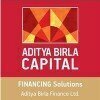Finance Manager
100+ Finance Manager Interview Questions and Answers
Asked in Falcon Marine Exports

Q. What are the major adjustments that need to be made while finalizing accounts?
Major adjustments while finalizing accounts include accruals, depreciation, provisions, and adjusting entries.
Accruals for expenses and revenues
Depreciation for fixed assets
Provisions for doubtful debts, warranties, and taxes
Adjusting entries for errors and omissions
Reconciliation of accounts
Closing entries for temporary accounts
Asked in Falcon Marine Exports

Q. While analyzing the performance of a company, what factors will you consider?
Factors considered while analysing a company's performance
Financial statements (income statement, balance sheet, cash flow statement)
Profitability ratios (ROE, ROA, gross profit margin)
Liquidity ratios (current ratio, quick ratio)
Debt ratios (debt-to-equity ratio, interest coverage ratio)
Market performance (stock price, market share)
Industry trends and competition
Management effectiveness and strategy
Economic and political factors
Finance Manager Interview Questions and Answers for Freshers

Asked in Laurus Labs

Q. How to calculate overhead rate for Inventory valuation. What is the method of Inventory valuation. What is CAS 4 and which CAS is applicable in your current company.Name them. How many CAS are there. How good u...
read moreOverhead rate for Inventory valuation is calculated by dividing total overhead costs by total direct labor hours. Inventory valuation methods include FIFO, LIFO, and weighted average. CAS 4 deals with depreciation accounting. CAS applicable in current company may vary. Good knowledge in MS Excel is essential. COP is the cost of producing goods, while COGS is the cost of goods sold.
Calculate overhead rate by dividing total overhead costs by total direct labor hours
Inventory va...read more
Asked in Power Bridge Systems

Q. What do you know about TCS ? Do you know how to file GST/TDS return ? What about ROC Filings ?
TCS is a multinational IT services and consulting company. Yes, I am familiar with filing GST/TDS returns and ROC filings.
TCS is short for Tata Consultancy Services, a global IT services and consulting company.
It provides a wide range of services including software development, business consulting, and IT infrastructure services.
TCS is headquartered in Mumbai, India and operates in over 46 countries.
As a Finance Manager, I am familiar with filing GST (Goods and Services Tax) ...read more
Asked in Falcon Marine Exports

Q. What were the major changes in recent budgets?
The recent budgets have seen major changes in tax rates, healthcare, and infrastructure spending.
Reduction in corporate tax rates to boost investment
Introduction of new tax regime with lower rates but without exemptions
Increase in healthcare spending with focus on Ayushman Bharat scheme
Allocation of funds for infrastructure development such as highways and railways
Increase in customs duty on certain goods to promote domestic manufacturing
Introduction of faceless assessment fo...read more

Asked in Amazon

Q. What is the procedure to enhance the duties and responsibilities?
To enhance duties and responsibilities, a clear plan must be developed and communicated to all stakeholders.
Identify areas for improvement
Develop a plan with specific goals and timelines
Communicate the plan to all stakeholders
Provide necessary training and resources
Monitor progress and adjust as needed
Finance Manager Jobs




Asked in Altisource

Q. If the topline changes by x%, how much will the bottom line change? Will it be more than x% or less than x%?
Topline changes affect the bottom line differently due to fixed and variable costs, impacting profit margins.
A 10% increase in revenue may lead to less than 10% increase in profit due to fixed costs.
For example, if a company has high fixed costs, a revenue increase may only boost profits by 5%.
Conversely, if variable costs are low, profits could increase more than the revenue change.
Understanding the cost structure is crucial to predict bottom line changes accurately.
Asked in Moneyplus Financial Services

Q. What information would you include in your biodata?
I would include my educational background, work experience, skills, certifications, and professional achievements in my biodata.
Educational background (degrees, institutions)
Work experience (previous roles, companies)
Skills (technical, soft skills)
Certifications (relevant to finance)
Professional achievements (awards, recognitions)
Share interview questions and help millions of jobseekers 🌟


Asked in Metayb

Q. Can you describe your experience in detail, including the steps of the process and the controls involved?
Experienced Finance Manager with a focus on budgeting, forecasting, and financial controls to ensure accuracy and compliance.
Developed annual budgets by collaborating with department heads to align financial goals with strategic objectives.
Implemented a monthly forecasting process to track variances and adjust financial plans accordingly.
Established internal controls to ensure accuracy in financial reporting, including regular audits and reconciliations.
Utilized financial sof...read more
Asked in BHM Construction International

Q. How quickly after month-end can expenses be reported to repatriate funds or book expenses from the UK?
Timely expense reporting post month-end is crucial for accurate financial management and fund repatriation.
Expenses should ideally be reported within 5 business days post month-end to ensure timely processing.
For example, if month-end is on the 31st, expenses should be submitted by the 7th of the following month.
This allows for accurate financial statements and timely decisions regarding fund repatriation.
Utilizing automated expense reporting tools can expedite this process s...read more

Asked in Aditya Birla Finance

Q. What is IRDA & RBI ?
IRDA is the Insurance Regulatory and Development Authority of India, while RBI is the Reserve Bank of India.
IRDA is a regulatory body that oversees the insurance sector in India.
It ensures the protection of policyholders' interests and promotes the growth and development of the insurance industry.
RBI is the central banking institution of India.
It is responsible for the regulation and supervision of the country's financial system.
RBI controls the monetary policy, issues curren...read more

Asked in Tube Investments of India

Q. What is the difference between finance and accounting?
Finance deals with managing money and investments while accounts deal with recording financial transactions.
Finance involves analyzing financial data, creating financial plans, and making investment decisions.
Accounts involve recording financial transactions, preparing financial statements, and maintaining financial records.
Finance is more strategic and forward-looking while accounts are more focused on historical data.
Examples of finance roles include financial analyst, inve...read more

Asked in Axis Bank

Q. What is KYC and why is it important? ... What is the difference between a Credit Card and a Debit Card?
KYC ensures customer identity verification to prevent fraud; credit cards allow borrowing, while debit cards use existing funds.
KYC stands for Know Your Customer, a process to verify the identity of clients.
It helps prevent fraud, money laundering, and terrorist financing.
Financial institutions collect personal information, such as name, address, and identification.
Credit cards allow users to borrow money up to a limit for purchases, e.g., Visa or MasterCard.
Debit cards withd...read more

Asked in Accenture

Q. What is the difference between a budget and a forecast?
Budget is a plan for future financial activities, while forecast is a prediction of future financial outcomes.
Budget is a detailed financial plan for a specific period, usually prepared annually.
Forecast is an estimate of future financial outcomes based on past data and trends.
Budget is more rigid and set in stone, while forecasts are updated regularly to reflect changing circumstances.
Budgets are used for planning and control, while forecasts are used for decision-making and...read more

Asked in Brindco Sales

Q. How should reserves and surpluses be treated? Are they assets or liabilities?
Reserve and surplus are not assets or liabilities, but rather equity accounts.
Reserve and surplus are part of the equity section of the balance sheet.
They represent profits that have been retained by the company instead of being distributed to shareholders.
Reserves can be created for specific purposes, such as a contingency fund or to finance future projects.
Surplus is the amount of profits that exceed the company's capital requirements.
Both reserves and surplus can be used t...read more

Asked in Amazon

Q. What are the primary responsibilities of a finance manager?
The prime sources of finance manager are equity, debt, and retained earnings.
Equity financing through stocks and shares
Debt financing through loans and bonds
Retained earnings from profits
Leasing and factoring
Grants and subsidies
Crowdfunding and peer-to-peer lending

Asked in Commutatus

Q. How do you account for indirect expenses across multiple projects to determine profitability at the project level?
Allocate indirect expenses to multiple projects for project-level profitability analysis.
Allocate indirect expenses based on a predetermined allocation key such as labor hours, square footage, or revenue generated by each project.
Use cost allocation methods like activity-based costing or cost driver analysis to distribute indirect expenses accurately.
Track and record indirect expenses separately for each project to ensure accurate project-level profitability analysis.
Regularl...read more

Asked in Cogent E Services

Q. Tell me what you liked and disliked about this company.
I appreciated the team's collaborative spirit but found the lack of clear communication challenging at times.
The team's collaborative spirit fostered a positive work environment, enhancing productivity.
I enjoyed the innovative projects we undertook, such as the new budgeting software implementation.
However, I found the lack of clear communication regarding project timelines to be a challenge, leading to some confusion.
The opportunities for professional development were excell...read more

Asked in Aditya Birla Finance

Q. Tell us something about Aditya Birla Group?
Aditya Birla Group is a multinational conglomerate with diverse interests in sectors like metals, cement, textiles, and financial services.
Founded in 1857, the group has a rich history and is headquartered in Mumbai, India.
It operates in over 36 countries and has a presence in more than 100 markets.
Key sectors include metals (Aditya Birla Metals), cement (UltraTech Cement), and textiles (Aditya Birla Fashion & Retail).
The group is also a significant player in financial servic...read more
Asked in Talendroid Technologies

Q. Within how much time will the software implementation happen?
The software implementation is expected to be completed within 6 months.
The software implementation timeline will depend on the complexity of the project and the resources available.
Typically, software implementations can range from a few weeks to several months.
Factors such as customization requirements, integration with existing systems, and testing can impact the timeline.
For example, a simple off-the-shelf software may be implemented within a month, while a complex ERP sy...read more
Asked in BHM Construction International

Q. How should MIS be submitted if no one in the company knows how to check it?
Implementing training and clear guidelines can help employees understand and check MIS effectively.
Conduct training sessions on how to interpret and analyze MIS reports.
Create a user-friendly manual or guide that outlines the steps to check MIS.
Utilize software tools that simplify the process of accessing and reviewing MIS data.
Assign a dedicated team or individual responsible for overseeing MIS and providing support.
Encourage a culture of data literacy within the organizatio...read more

Asked in ComAp

Q. How will you ensure correct financial statement reporting and closing entries?
To ensure correct financial statement reporting and closing entries, I will implement strong internal controls, perform regular reconciliations, and involve multiple team members in the review process.
Implement strong internal controls to prevent errors and fraud
Perform regular reconciliations of accounts to ensure accuracy
Involve multiple team members in the review process to catch any discrepancies
Document all financial transactions and ensure proper classification
Stay upda...read more

Asked in Cholamandalam Investment & Finance

Q. What level of enthusiasm should a candidate display during an interview?
Energy level should be positive, enthusiastic and confident.
Maintain eye contact and smile
Speak clearly and confidently
Show enthusiasm for the role and company
Avoid being too nervous or too relaxed
Be positive and avoid negative comments
Show interest in the interviewer and their questions

Asked in Hikal

Q. What are the elements in MIS ? reasons for variance ?
Elements in MIS include data, information, systems, and processes. Variances can be caused by errors, changes in assumptions, or external factors.
Elements in MIS: data, information, systems, processes
Reasons for variance: errors, changes in assumptions, external factors
Example: Variance in budgeted vs. actual expenses due to unexpected increase in costs

Asked in Hikal

Q. What is LHR need ? how do you calculate it and need of it ?
LHR stands for Liquidity-Asset Ratio, it is calculated to determine a company's ability to meet short-term obligations.
LHR is calculated by dividing liquid assets by current liabilities.
It helps assess a company's liquidity and ability to pay off short-term debts.
A higher LHR indicates better liquidity and financial health.
For example, if a company has liquid assets of $100,000 and current liabilities of $50,000, the LHR would be 2.

Asked in TCS

Q. What variances did you encounter, and what actions were taken in response?
Encountered variances in budget vs actual expenses, took actions to analyze and adjust accordingly.
Identified variances in budgeted expenses compared to actual expenses
Conducted detailed analysis to understand the root causes of variances
Implemented cost-saving measures to address negative variances
Adjusted budget forecasts based on the analysis results
Communicated findings and actions taken to stakeholders

Asked in Mahindra Rural Housing Finance

Q. What is 7/12 and what are you fisrt seen in 7/12
7/12 is a fraction used in land measurement in India. The first thing seen in 7/12 is the name of the landowner.
7/12 is a fraction used in land measurement in India
It represents the portion of land owned by a particular person
The first thing seen in 7/12 is the name of the landowner
It also includes details like survey number, area, and type of land
Asked in Corporate Chanakya

Q. Are you willing to relocate if needed?
I am open to relocation as it aligns with my commitment to the company's goals and my professional growth.
Relocation can provide valuable experience in different markets.
It demonstrates flexibility and adaptability, which are crucial in finance.
For example, working in a different location may allow me to understand regional financial regulations better.
I believe that being part of a team in another location can enhance collaboration and knowledge sharing.

Asked in Johnson Matthey

Q. How much experience do you have in sales and margin variance analysis?
I have extensive experience in sales and margin variance analysis.
I have worked as a finance manager for 5 years, where I was responsible for analyzing sales and margin variances on a monthly basis.
I have experience in identifying trends and patterns in sales data, and using this information to make recommendations for improving profitability.
I have also worked closely with sales teams to develop pricing strategies that maximize margins while remaining competitive in the mark...read more

Asked in Tube Investments of India

Q. How do you control outstanding debts for extended periods?
Controlling debtors outstanding involves setting credit policies, monitoring payment schedules, and following up on overdue accounts.
Establish clear credit policies and payment terms
Monitor payment schedules and follow up on overdue accounts
Offer incentives for early payments and penalties for late payments
Maintain good relationships with customers to encourage timely payments
Consider outsourcing debt collection to a third-party agency if necessary
Interview Questions of Similar Designations
Interview Experiences of Popular Companies






Calculate your in-hand salary
Confused about how your in-hand salary is calculated? Enter your annual salary (CTC) and get your in-hand salary


Reviews
Interviews
Salaries
Users










